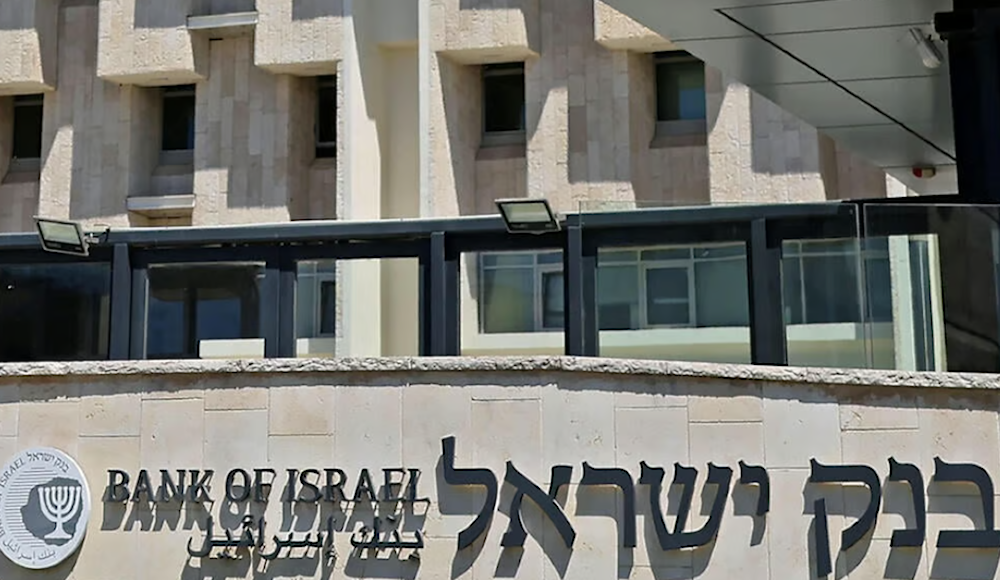'Bank of Israel' lowers short-term loan rates for first time in 4 yrs
The Central Bank cut its benchmark rate (ILINR=ECI) by a quarter point, lowering it from 4.75% to 4.50%.
-

"Bank of Israel" building in occupied al-Quds (AFP)
The "Bank of Israel" cut short-term borrowing rates for the first time in almost four years on Monday, in response to statistics suggesting a weaker economy and reduced inflation as a result of the war on Gaza.
Analysts were split before the announcement, with seven anticipating no change and seven expecting a 25 basis point cut, the first since April 2020.
The Central Bank cut its benchmark rate (ILINR=ECI) by a quarter point, lowering it from 4.75% to 4.50%.
According to a statement by the bank, "The war is having significant economic consequences, both on real economic activity and on the financial markets," explaining that "uncertainty" regarding the expected duration of the war, as well as its severity, are affecting the extent of the impact on activity.
It had increased rates ten times in a row in an aggressive tightening cycle that has taken the rate from 0.1% last April before pausing in July and again in August, October, and November. The most recent rate decrease occurred in April 2020.
In November, the inflation rate fell to 3.3% from 3.7% in October, although it remained over the 1%-3% annual target range.
Since the beginning of the war on Gaza, workers have been drafted to serve with the Israeli occupation forces, marking a drastic economic stump for "Israel". Before the war, only 3% of the workforce was missing from labor markets. The statistic saw a 17% jump following October 7, according to the Taub Center for Social Policy Studies, an Israeli think tank.
Consequentially, 20% of the Israeli workforce, or 900,000 Israelis, are now either enlisted in the IOF, unemployed at home, fled from settlements where attacks have been concentrated, such as by the borders of Lebanon and Gaza, or are unable to work due to the destruction of their work industry.
Although negative estimates of Israeli economic growth have been a concern for the occupation, accounting for the material losses it has experienced, as well as the drastic cost of war, the "Bank of Israel" projected an ambitious 2% growth, referencing previous wars and the Covid-19 epidemic that did not affect the economy as expected. However, different sources claimed that if the Israeli economy were to see growth, it would roof at 0.5%.
An analysis by The Washington Post on Sunday revealed that the war on Gaza is imposing a staggering daily cost of $220 million on "Israel", totaling nearly $18 billion thus far.
According to the financial newspaper Calcalist, if the war persists for an additional five to ten months, the potential cost to "Israel" could soar to $50 billion, equivalent to 10% of the regime's GDP.
The report, citing economists, highlighted the significant toll the war on Gaza has taken on the Israeli economy, impacting sectors such as tourism, the tech industry, and the construction sector, which heavily relies on Palestinian labor.

 3 Min Read
3 Min Read








